The Lodz Gestalt School is equipped with a library, where students will find many interesting materials related toGestalt and beyond.
Structure of the Gestalt Library
Many of the items in the library the school will post on the site in electronic versions. These will be books, articles, magazines, anything that will help to acquire additional knowledge in the field of psychology and psychotherapy. Both in the library located at the Lodz Gestalt School Headquarters and in our online library, materials will be regularly replenished. There is also a reading corner in the School’s library, which will allow our students to read the recommended literature in silence. Our goal is for the library to serve not only an educational and research function, but also a social and recreational one.
Library of the Lodz Gestalt School - rules for borrowing books
- Students will be asked to fill out a library card, located in the School’s library.
- Students can borrow a maximum of 5 readings at a time.
- Students agree to return the books within no more than 1 month after borrowing.
Library opening hours
Lodz Gestalt School is very keen to ensure that students have regular access to all materials in the field of psychology and psychotherapy, so the library is open Monday through Friday from 10:00 am to 3:00 pm.
Recommended literature - Librarygestalt.co.uk
The Lodz Gestalt School also recommends literature found at LibraryGestalt.pl. On this site you will find only legal, publicly available books, articles or audio/video materials in the field of Gestalt psychotherapy. LibraryGestalt.co.uk is a place created for the Gestalt community to facilitate access to knowledge or inspire substantive discussions. In addition, it is open to collaboration and accepts authors’ materials and press releases on events from the world of Gestalt.
The Gestalt Library catalog will certainly make it easier for you to find interesting materials. Everything is arranged in alphabetical order, with gestalt novelties highlighted at the beginning.
Lodz Gestalt School recommends this site without a doubt. We encourage you to read!
Library of the Lodz Gestalt School - current collections
A

“Queering Gestalt Therapy. Gender and Relationship Diversity in a Therapeutic Context” – ed. by Ayhan Alman, John Gillespie, Vikram Kolmannskog (Publisher: Open Union Publishing House, Warsaw 2024)
“The practice – and psychotherapy more broadly – continues to suffer from pervasive hetero- and cis-normativity.
This book contains research and training materials on the topic of gender, sexual, and relational diversity (GSRD), including chapters on various issues related to GSRD and how therapists can become more sensitive to GSRD. The authors identify themselves across the GSRD spectrum and offer their voices as an invitation to further queer the community through a variety of content ranging from academic, research-oriented works to empirical, reflective perspectives. Selected chapters address topics such as gender radical clients, sex and sexuality, relationship diversity, integrating GSRD and therapy, and addressing heteronormativity in therapeutic training.
As indicated in the opening paragraph, this book is intended for any person who is interested in GSRD and therapy, especially gestalt therapy. Anyone, regardless of gender identity, sexual orientation or relationship preference. While we warmly welcome readers who belong to other therapeutic traditions or none at all, it should be noted that several chapters take for granted a basic understanding of gestalt therapy theory and concepts. This book is also an invitation to further queer the gestalt community with a variety of content, from academic, research-oriented to experiential, reflective perspectives. While we appreciate academic rigor, we know that academia itself excludes many voices that deserve to be heard. That’s why we subjected all chapters to a peer review process, but ultimately put experience over theory, sensitivity over excellence, accessibility over limitations.”
B
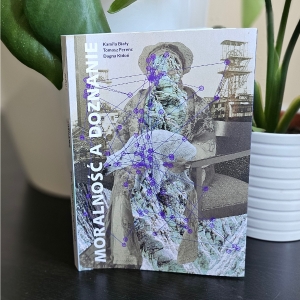
“Morality and sensation. Notes on the Aesthetic and Non-Aesthetic Experience of Art″ – Kamila Biały, Tomasz Ferenc, Dagna Kidoń (Publisher: PAŃSTWOWA WYŻSZA SZKOŁA FILMOWA, TELEWIZYJNA I TEATRALNA IM. LEON SCHILLER, Lodz 2023)
“What do oculographic research, art, politics, neuroscience and phenomenology have in common? How do we look at images and how do they affect us? Do our beliefs influence the reception of images and what lies behind our aesthetic experience? These are just a few of the questions that the author and authors of the book, which combines reflections on the nature of our minds, remarks on research method and art, try to answer. The starting point for the research was the question of how much political attitudes and worldview affect the reception of contemporary art. It turned out to be just the beginning for a broader consideration of the phenomenon of reception.”

“BREAKING THE KNOWLEDGE: Phenomenology and the Ethics of Psychotherapy”. – Jacques Blaize (Publisher: Oficyna Związek Otwarty, Warsaw 2024)
“The author thus invites us to a phenomenological rereading of therapy in language that is at once clear and concise, but always rigorous and avoids oversimplification. Indeed, Gestalt therapy, sometimes forgetting its phenomenological foundations, has itself too often succumbed to the fascination of techniques, to the illusion of believing that its concepts are reality, which is more ultimate, and that it has the power to exorcise suffering and lead to happiness!”
G
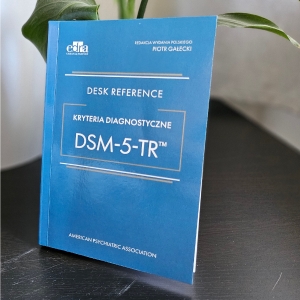
“DESK REFERENCE DSM-5-TRTM diagnostic criteria″ – American Psychiatric Association. Editor of the Polish edition: Piotr Galecki (Publisher: Edra Urban & Partner, Wroclaw 2024)
“DESK REFERENCE publication DSM-5-TR diagnostic criteriaTM contains the fully revised diagnostic classification, as well as all DSM-5-TR diagnostic criteria.
It is an indispensable tool in the clinical practice of all mental health professionals – providing quick access to the necessary information to establish the diagnosis of mental disorders, from the most common to the rarest.”
H
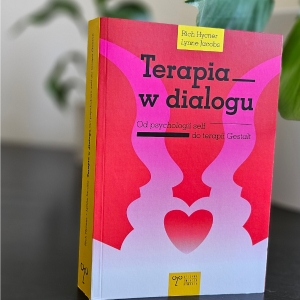
“Therapy in Dialogue. From self psychology to therapy” – Gestalt R. Hycner, L. Jacobs (Publisher: Oficyna Związek Otwarty, Warsaw 2020)
“By dialogicality we mean a whole relational context in which the uniqueness of each person is valued, direct, mutual and open relations between people are emphasized, and the fullness and presence of the human spirit is respected and taken into account. This is a heart-flowing approach rather than a theory.”
J
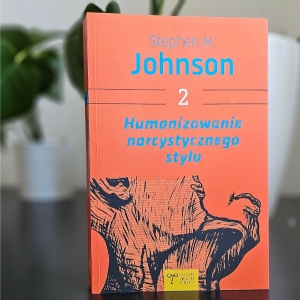
“Humanizing the Narcissistic Style” – Stephen M. Johnson (Publisher: Open Union Publishing House, Warsaw 2023)
“Reissued after 30 years, Stephen M. Johnson’s book does not lose its relevance. How does it differ from other books describing the problems of narcissistic style? There has not been and there is no author who more beautifully describes and understands what is arranged in our narcissistic sensitive structure.
The great value of this book is the extensive clinical material, which shows step-by-step ways of therapeutic work with patients with narcissistic style . The author draws on knowledge based on object relations theory, Gestalt therapy, body work, Ericksonian and behavioral therapy.”
L

“The Sexual. On Gestalt therapy beyond words,” by André Lamy (Publisher: Open Union Publishing House, Warsaw 2022)
“Anything you find reasonable or just a little unusual here comes directly from Professor Freud of Vienna and his disciples (and from Gestalt therapy theory). I, on the other hand, acknowledge the paternity of what you will think is completely crazy.
I will try, sticking to the basics, to describe Gestalt therapy through the sexual. I hope this attempt will enrich Gestalt practice and attitude on all issues – sexual and otherwise. Anyway – are there any others?”
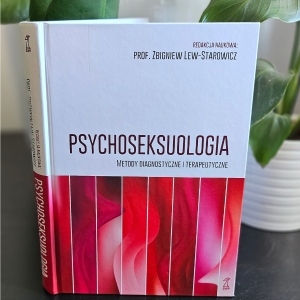
“Psychosexology. Diagnostic and therapeutic methods″ – Zbigniew Lew-Starowicz (Publisher: Gdańskie Wydawnictwo Psychologiczne (GWP), Sopot 2022)
“The book, edited by Professor Zbigniew Lew-Starowicz, is the first publication on the Polish publishing market to discuss issues in psychosexualology in such a comprehensive manner. The authors – recognized experts in their field – present current diagnostic and therapeutic concepts and their application in clinical practice, citing the results of the latest scientific research. (…) The book is an invaluable source of knowledge for psychologists beginning specialization studies in psychosexualology and those in the process of specialization.”
O

1 “Windows to Our Children. Therapy of children and adolescents in the Gestalt approach,” by Violet Oaklander (Publisher: Open Society Publishing, Warsaw 2021)
“Windows to Our Children is also a treasure trove of techniques and tools for therapeutic work with children and adolescents. One need only look at the table of contents alone to see their richness and variety. The author generously shares with us her practice, describing them with examples to inspire their use. Among other things, she presents a technique for using imagination as a tool for Visualization and evocation of symbolic content, which then therapeutically They “work.” We have work with drawing, clay, wood, etc. We will read about the therapeutic sandbox application. You will find ideas for using tests projection. Finally, a creative take on creating poetry, stories, staging Theatrical, radio plays … All in order to creatively, interestingly, through play to bring to the surface important content, to create from it a figure and work on integration within the children’s self.
Windows to Our Children is not just a book about how to work With a child in the Gestalt approach. It is also a book that primarily sensitizes how to be with a child. It shows that the most important thing is to meet and contact, to see the child for what he is, with what he comes with at a particular moment in his life.
Perhaps this item will support and inspire educators, psychologists, teachers, therapists,, and, and perhaps most importantly, parents. We hope that, as Violet wished, it will give you courage and make you look for the One’s own potential in this area. It may prove helpful in better understanding the world of the child, to open the title windows to the parents, through which they can otherwise look at their children with their problems and developmental peculiarities. Maybe finally Provide parents with tips and inspiration for spending creative time with their child (e.g., visualization, clay, puppet shows), as well as give tools for creatively solving children’s problems and expressing difficult emotions (e.g., the empty chair technique).“

2. “Hidden Treasure. The path to a child’s self” – Violet Oaklander (Publisher: Oficyna Związek Otwarty, Warsaw 2024)
“How is it that some children take up challenges, are active, seek space for themselves, while others remain passive, withdraw from contact and prefer to be unnoticed.
What promotes the development of children? What triggers joy in them ? What makes them feel safe in their relationship with peers and adults ?
In Violet Oaklander’s book you will find answers to these questions. It is a comprehensive resource for psychologists and psychotherapists, who will find practical guidance for psychotherapeutic work. School and preschool teachers, educators, will find in this position signposts to what to do to make the children in their group or class, want to play and learn. Parents who want to explore the world of children will learn from this book how to be in full, lively and creative contact with their child. The author describes specific yet warm-hearted psychotherapeutic interventions and the children’s reactions they elicit.
“Hidden Treasure is a reading that helps us all understand how important we are in the lives of children.”
P
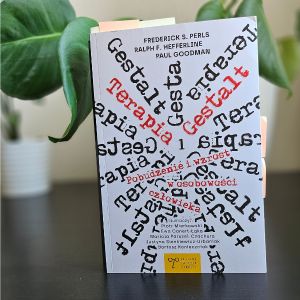
“Gestalt Therapy. Stimulation and growth in human personality” – Frederick Perls, Ralph Hefferline, Paul Goodman (Publisher: Open Union Publishing, Warsaw 2022)
“If Gestalt therapy can continue to offer hope of providing a fresh perspective in this increasingly noisy therapeutic debate, it is because Gestalt theory has completely abandoned the use of the natural science model, and has done so without having to appeal to mysticism. The theoretical half of Perls, Hefferline and Goodman’s book, rather than attempting to describe health and pathology in terms drawn from sciences based on cause-and-effect relationships, presents a phenomenological understanding of these phenomena, relying on an observable and immediately describable experience of how a person creates and maintains a healthy or neurotic reality. This represents a radical departure from traditional psychotherapy paradigms, while at the same time ensuring that Gestalt therapy does not have to take sides in the current debate about which discipline better represents the actual science of human suffering.”
R
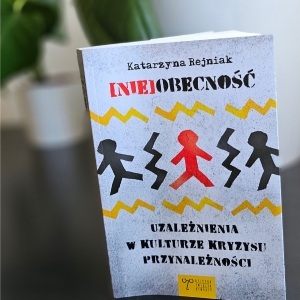
“(Un)presence. Addictions in the Culture of Belonging Crisis,” by Katarzyna Rejniak (Publisher: Oficyna Związek Otwarty, Warsaw 2023)
“Catherine Rejniak’s book leads the reader towards understanding the beliefs and attitudes, and above all the feelings we have towards addicts. The journey gives us a fuller picture of the suffering of these people; we hear the deafening echo of the empty well of their childhood, and the adult relationships shaped by it. As we delve deeper into the Author’s thought, this sound becomes clearer and clearer. We discover how traumatic experiences determine our lives. We also recognize this in a broader, social perspective.”
S

“The Practice of Gestalt Therapy. Theory and Experience,” by Gro Skottun, Ashild Kruger (Publisher: Open Union Publishing, Warsaw 2023)
“This method enables an experiential learning process that can be described in three phases. The first begins with moderated practical exercises. These are followed by discussion, and only in the third step are the theoretical basics presented and discussed. The advantage of this form of teaching is that the student has the opportunity to assimilate knowledge in depth. Concepts become integrated with the body, emotions and thoughts.” (from the introduction)
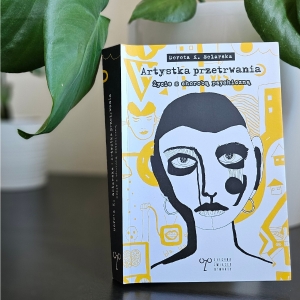
“Survival Artist. On living with mental illness″ – Dorota K. Solarska (Publisher: Oficyna Związek Otwarty, Warsaw 2022)
“While the diagnosis of bipolar disorder was like a short dress, schizoaffective disorder-
For years like a dress uncomfortable, information about borderline personality disorder
finally turned out to be the one that fits best. As my husband, an engineer, stated: it may not be the theory that describes the entire universe, but it is the most accurate theory of the universe we have.”
W
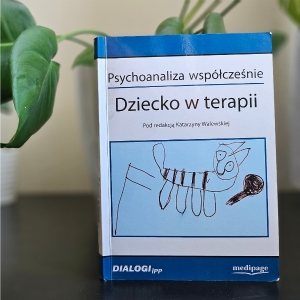
“Psychoanalysis Today. The child in therapy″ – edited by Katarzyna Walewska. (Publisher: MediPage, 2008)
Psychoanalysis Today is a new collection from MediPage Publishing House. Its second volume, The Child in Therapy, contains works on both child psychopathology and treatment modalities, presented from the point of view of various authors.
“Psychoanalysis […] cannot deal completely with the drive for aggression; however, it can – by reducing the anxiety that intensifies these drives – interrupt the process of mutual reinforcement of hatred and fear. In analytical work, we observe that working through early childhood fears not only weakens and modifies the child’s aggressive impulses, but also leads to the use and satisfaction of these impulses, which is more socially desirable. We also see how the child’s desire to love, be loved and live in harmony with the surrounding world develops, what pleasure and benefit the realization of this desire brings, and how much it weakens anxiety.”
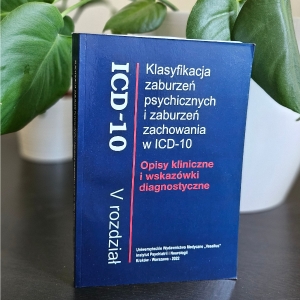
1. “Classification of Mental and Behavioral Disorders in ICD-10. Clinical Descriptions and Diagnostic Guidelines″ – Jacek Wciórka, Stanisław Pużyński (Publisher: Vesalius, Krakow-Warsaw 2021)
“Book Classification of Mental and Behavioral Disorders in ICD-10 is the first and basic derivative of Chapter V of the tenth version of the “International Statistical Classification of Diseases and Health Problems (ICD-10).” Classification of Mental and Behavioral Disorders is a guide to Chapter V, Mental and Behavioural Disorders, containing basic clinical descriptions and diagnostic clues useful for classifying mental disorders that a psychiatrist encounters in daily practice. It should be noted that the book Classification of Mental and Behavioral Disorders is not a textbook of clinical psychology, although it contains a lot of valuable information on the clinical picture of mental and behavioral disorders.”
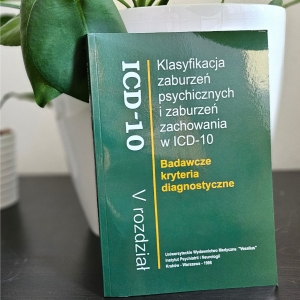
“Classification of Mental and Behavioral Disorders in ICD-10. Research Diagnostic Criteria″ Jacek Wciórka, Stanisław Pużyński (Publisher: Vesalius, Krakow-Warsaw 2022)
This book presents the Research Diagnostic Criteria, another in a family of tools developing the tenth version of the ICD-10 Classification of Mental and Behavioral Disorders. They clarify and highlight many of the principles and solutions signaled in the Clinical Descriptions and Diagnostic Guidelines provided to the Polish reader a year ago. Although they are basically intended for research use, both the novice and the seasoned clinician can benefit a great deal from reading the diagnostic and classification solutions proposed here. The two books complement each other, and the Research Diagnostic Criteria, as published later, contain a number of new suggestions, partly resulting from their intended use and partly from the reception experience of the previously published Clinical Descriptions and Diagnostic Guidelines. We hope that both books will prove helpful to Polish psychiatrists in their clinical work and in solving research problems.
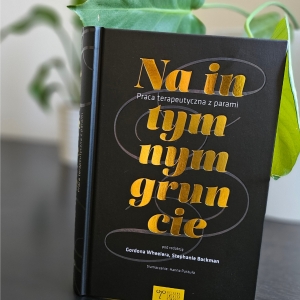
“On Intimate Ground. Therapeutic Work with Couples,” by Gordon Wheeler, Stephanie Backman (Publisher: Open Union Publishing, Warsaw 2023)
“Drawing on insights from Gestalt psychology and psychotherapy, the authors show us how a truly phenomenological approach, based on clients’ own experiences, becomes the key to increased relational awareness and flexibility in couples’ lives. Fifteen engaging chapters demonstrate the application of this approach to issues of intimacy, power and abuse, ‘resistance,’ growth and shame – and to issues as diverse as partner relationship violence, couples and reconstituted families, patchwork families, lesbian couples, homosexual couples.”

